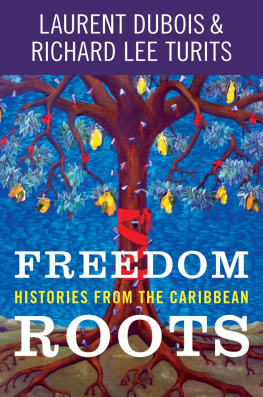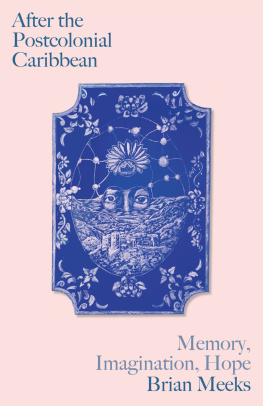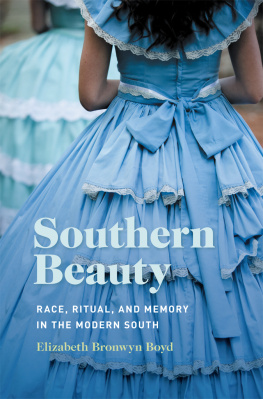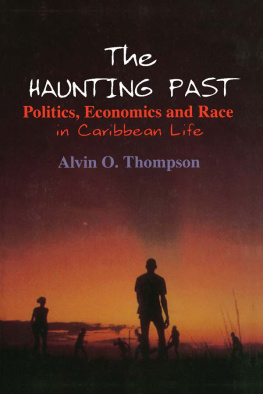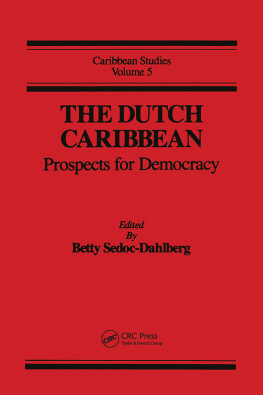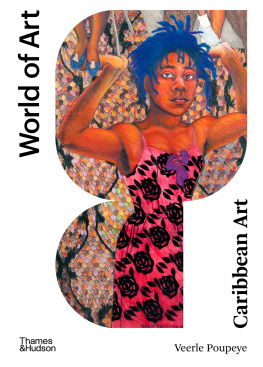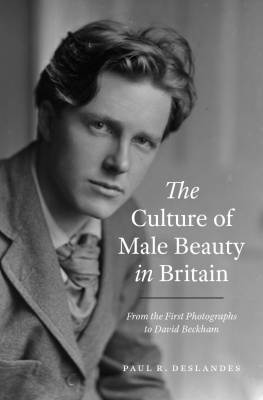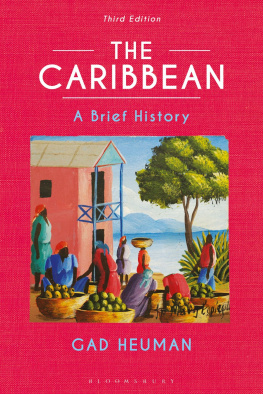
GENDER IN HISTORY
Series editors:
Lynn Abrams, Cordelia Beattie, Pam Sharpe and Penny Summerfield
The expansion of research into the history of women and gender since the 1970s has changed the face of history. Using the insights of feminist theory and of historians of women, gender historians have explored the configuration in the past of gender identities and relations between the sexes. They have also investigated the history of sexuality and family relations, and analysed ideas and ideals of masculinity and femininity. Yet gender history has not abandoned the original, inspirational project of womens history: to recover and reveal the lived experience of women in the past and the present.
The series Gender in History provides a forum for these developments. Its historical coverage extends from the medieval to the modern periods, and its geographical scope encompasses not only Europe and North America but all corners of the globe. The series aims to investigate the social and cultural constructions of gender in historical sources, as well as the gendering of historical discourse itself. It embraces both detailed case studies of specific regions or periods, and broader treatments of major themes. Gender in History titles are designed to meet the needs of both scholars and students working in this dynamic area of historical research.
Imagining Caribbean womanhood
ALSO AVAILABLE IN THE SERIES
Myth and materiality in a womans world: Shetland 18002000
Lynn Abrams
Destined for a life of service: defining African-Jamaican womanhood, 18651938
Henrice Altink
Love, intimacy and power: Marital relationships in Scotland, 16501850
Katie Barclay
Artisans of the body in early modern Italy: identities, families and masculinities
Sandra Cavallo
Modern motherhood: women and family in England, c. 19452000
Angela Davis
Jewish women in Europe in the Middle Ages: a quiet revolution
Simha Goldin
The military leadership of Matilda of Canossa, 10461115
David J. Hay
The shadow of marriage: singleness in England, 191460
Katherine Holden
Infidel feminism: secularism, religion and womens emancipation, England 18301914
Laura Schwartz
The feminine public sphere: middle-class women and civic life in Scotland, c. 18701914
Megan Smitley
Being boys: working-class masculinities and leisure
Melanie Tebbutt
IMAGINING CARIBBEAN WOMANHOOD
RACE, NATION AND BEAUTY CONTESTS, 192970
Rochelle Rowe
Manchester University Press
Manchester and New York
distributed in the United States exclusively by Palgrave Macmillan
Copyright Rochelle Rowe 2013
The right of Rochelle Rowe to be identified as the author of this work has been asserted by her in accordance with the Copyright, Designs and Patents Act 1988.
Published by Manchester University Press
Oxford Road, Manchester M13 9NR, UK
and Room 400, 175 Fifth Avenue, New York, NY 10010, USA
www.manchesteruniversitypress.co.uk
Distributed in the United States exclusively by Palgrave Macmillan
175 Fifth Avenue, New York, NY 10010, USA
Distributed in Canada exclusively by UBC Press
University of British Columbia, 2029 West Mall,
Vancouver, BC, Canada V6T 1Z2
British Library Cataloguing-in-Publication Data
A catalogue record for this book is available from the British Library
Library of Congress Cataloging-in-Publication Data applied for
ISBN 978 0 7190 8867 4 hardback
First published 2013
The publisher has no responsibility for the persistence or accuracy of URLs for any external or third-party internet websites referred to in this book, and does not guarantee that any content on such websites is, or will remain, accurate or appropriate.
Typeset in Minion with Scala Sans display
by Graphicraft Limited, Hong Kong
For Rosa, Raphael and Mum
Types of English beauty, Planters Punch
Miss St Kitts, cover girl and candidate in the Miss British Caribbean competition of 1947
Coca-Cola sponsors Hollywood glamour in the Carnival Queen contest. Rosemary Knaggs, Carnival Queen, 1953
The world has much to learn from the West Indies, 1956 [By kind permission of the Blake family]
Ten Types One People
Doreen Bryan, Miss Ebony, 1959 [By kind permission of the Blake family]
Guinea Gold Soap
Reigning beauties [ Courtesy of the Gleaner Company Ltd]
You can see the difference [By kind permission of the Blake family]
Your BOAC stewardesses, sir [By kind permission of the Blake family]
Vanity celebrates Misses Jamaica Judith Willoughby, Miss Jamaica, 1960
Yvonne Walter, Miss Jamaica, 1966
Jamaican Housewife cover, Spring 1965
Pure Jamaican
Carnival Queen contestants, London 1959 [ Courtesy of Getty Images]
Claudia Jones, Marlene Walker and Carmen England [By kind permission of Donald Hinds]
I have many people to thank for their part in helping me to research and write this book. Thank you to the publishers Manchester University Press, and to the anonymous readers who commented on drafts. Thanks to the Arts and Humanities Research Council of the UK and the University of Essex for funding original research into this neglected and taboo subject area, including extensive travel to overseas archives and conferences. Many thanks to the patient archivists of the Caribbean; to the entire staff at the National Library of Jamaica; the National Archives of Trinidad and Tobago; the Barbados Department of Archives; the libraries and archives of the University of the West Indies, West India Collections at Mona and Cave Hill, and the West Indiana and Special Collections Division at St Augustine. Thanks especially to Jessica Lewis and Genevieve Jones-Edman. Thanks are also due to the staff of the Schomberg Centre of Black Research, Harlem. Of the British archives thanks especially to the staff at the British Library, the National Archives, the Institute for Commonwealth Studies, Lambeth Libraries and the Black Cultural Archives. I am also grateful to the Society for Caribbean Studies for being a forum for Caribbeanist researchers in Britain, whose conferences and seminars have been of great value to me. Thanks also to the network of Dress and the African Diaspora scholars who supported and critiqued earlier formulations of my arguments. Thanks also to the Womens History research seminar and Graduate Student research seminars at the University of London for their supportive critique and feedback of earlier drafts of these chapters.
Thank you to the Blake family for providing permission to use the fantastic images in their ownership. Thank you to all those who contributed their thoughts and experiences to this project by agreeing to be interviewed: Anna Adimira, Ngozi Aleme, Irico Aleme, Trevor Carter, Betty Hill, Jennifer Hosten, Frank Hunte, Sylvia John, Marcus Jordan, Olga Lope-Seale, Marvo Manning, Claudette Pickering and especially Donald Hinds, who also shared photographs from his collection.
For their generous critique and guidance thanks to Mary Ellen Curtin, Peter Gurney, Jeremy Krikler, Diana Paton, Alison Rowlands and Owen Robinson and the anonymous readers and editors of the Radical History Review , which published a somewhat different version of . For their encouragement and insights along the way thanks also to Henrice Altink, Emily Zobel Marshall, Monica Morena Figueroa, Mark Figueroa, James Robertson, Gordon Rohlehr, Claudia Hucke, Anyaa Adim-Addo, Phillipa Lane, Cathryn Wilson, Aisha Khan, Ambra Sedlmayr, Deborah Thomas, Leah Rosenberg, Sandra Courtman, Rivke Jaffre, Ian Robertson, Carolyn Cooper, Kate Quinn, Natasha Barnes, Carole Boyce Davies, Rose Matthews, Carole Tulloch, and David Dodman. Thanks especially to loved ones, Raphael, Reggie, Coreen, Rosa, Annette, Wendy, Nancy and Vita for inspiring and sustaining my journey.


